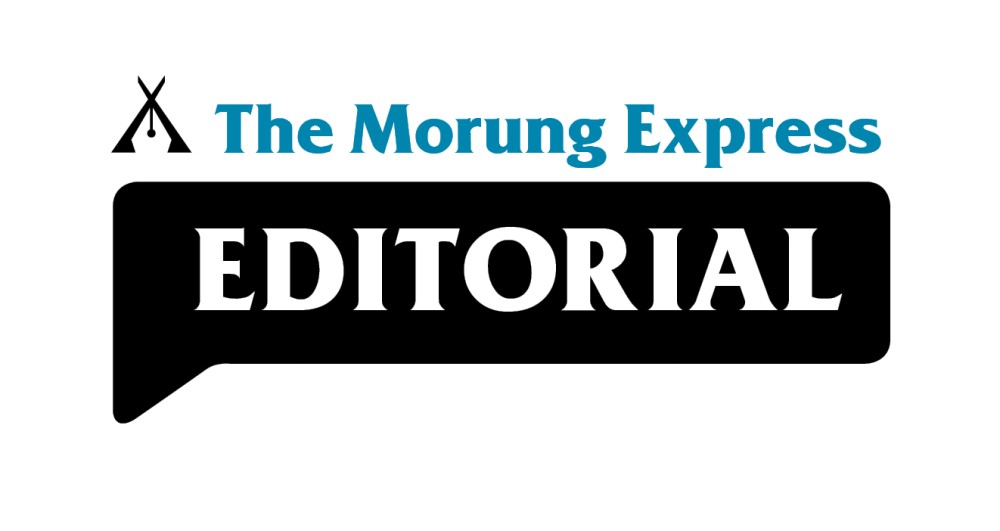
By Asangba Tzudir
Recently, in tune with the year-end festivities and celebrations including the Hornbill Festival, the Nagaland Baptist Churches Council (NBCC) sounded a bugle on the Nagaland Liquor Prohibition issue stating that, 'Evil is evil and there is no better evil.' Prohibition and its associated tales have come a long way that today the debate around the Nagaland Liquor Total Prohibition (NLTP) Act has grown into something deeper than a policy discussion. The ‘debate’ can be likened to a tug-of-war between ‘enforcing’ and ‘lifting’, and which is being increasingly seen as a contest between two positions - moral and spiritual advocacy in safeguarding the society on one hand, while on the other are those who experience the economic, social, and enforcement-related consequences of prohibition. While the concerns are real, caught between moral degradation, health, so also the larger economic consideration, what is indeed troubling is the ‘businesses’ associated with the ‘syndicate system.’
Though without generalizing, a concerned mother shared that both lifting and enforcing has its own merits and demerits, but that she would not want to lift the prohibition. “Imagine having a wine store in every nook and corner of the town and the young children getting a vibe of it. They'll eventually be attracted towards it. Just an instance, nowadays kids cannot go about without fast food, that's the trend. Wine will become a part and parcel of our everyday life and that's where the morality along with health will go down the drain.” Dismissing this, a proponent of ‘lifting’ had to say this: "While the mother’s concern is understandable, lifting prohibition does not automatically lead to wine shops in every nook and corner.” Adding that, “regulation prevents exactly that. A controlled system with strict licensing, limited outlets, zoning guidelines, age-verification technology and heavy penalties for violators will ensure that alcohol sales remain tightly monitored unlike the current situation, where unregulated bootlegging thrives without checks. Moreover, the state is losing enormous revenue to this black market culture. Legalizing with strong safeguards would redirect this money to public welfare, healthcare, education and even targeted de-addiction programs for youth. Countries and Indian states that lifted prohibition but implemented strict licensing have shown that responsible regulation reduces harm far more effectively than blanket bans, which only push the problem deeper." The mother quipped, “I feel having a sound mind and morality is more important than the revenue liquor will generate.”
‘To lift’ or ‘not to lift’ is a dilemma the liquor prohibition presents not because the debate on prohibition has concluded, but because our State is not prepared either to lift or enforce especially in terms of policy measures and regulation. Caught between lifting and enforcing, can a middle path be worked out? It is not about choosing sides, but lies in integrating the valid opinions and concerns of both into a workable, humane, and culturally realistic policy. Acknowledging the core concerns on both sides - from those in favour of prohibition especially the Church’s Perspective, alcohol causes family breakdown, domestic violence, financial ruin, and spiritual decline. And looking at the history of Prohibition and how it was enforced in Nagaland, it symbolizes a moral stand for a Christian society.
From the Public’s Perspective especially those shouting that prohibition should be lifted, the larger argument is, the Act has largely failed in practice and where alcohol is widely available and unregulated. That, the black market has grown, benefitting bootleggers, smugglers and the liquor syndicate while the Government loses revenue, and burdens ordinary citizens.
Considering a middle path, it should begin by recognizing that both concerns are legitimate and real rather than one being ‘right’ and the other ‘wrong.’ Further, considering the line of debate, it is time to shift the ‘prohibition versus No prohibition’ debate to a sincere dialogue on ‘what best protects public health and society.’ Instead of debating moral ideals versus practical realities, the middle path can reframe the debate towards an approach that seeks to address how harm to families can be reduced, protects youth, and one that promotes responsibility. This can lead to a healthier, solutions oriented dialogue.
Beyond the lifting and enforcing debate, there is need for greater public dialogue instead of polarization and because of which the debate has become emotional and identity-based. As such, this middle path requires Community consultations by taking inputs from women’s groups, youth organizations, health professionals, law enforcement, church leaders, economists and make evidence based realistic assessments on relevant aspects. One major concern of the Church is addiction and rehabilitation. This is where the Church and the government can partner by not only providing funding for rehab centers but also partner for counseling programs.
It feels like the issues surrounding NLTP Act is not given the due warrant it deserves and which will happen only when everyone speaks, that dialogue will not only happen but also broaden within a collectivity. On the whole, the middle path should strive towards retaining the moral fabric of protecting the society from alcohol abuse, by redesigning the law to work in real life, not just on paper.
Nagaland needs a vision that is both moral and realistic and thereby do not need to choose between being a Christian society, or being a practical, economically responsible society. The middle path is for Nagaland to be both, and where the law respects Christian values, reduces harm, recognizes social realities, and prioritizes that human wellbeing is possible. This calls upon the owning of responsibilities, cooperation and participation of every individual in becoming a part of the larger dialogue process.
(Dr. Asangba Tzudir contributes a weekly guest editorial for The Morung Express. Comments can be emailed to asangtz@gmail.com).






